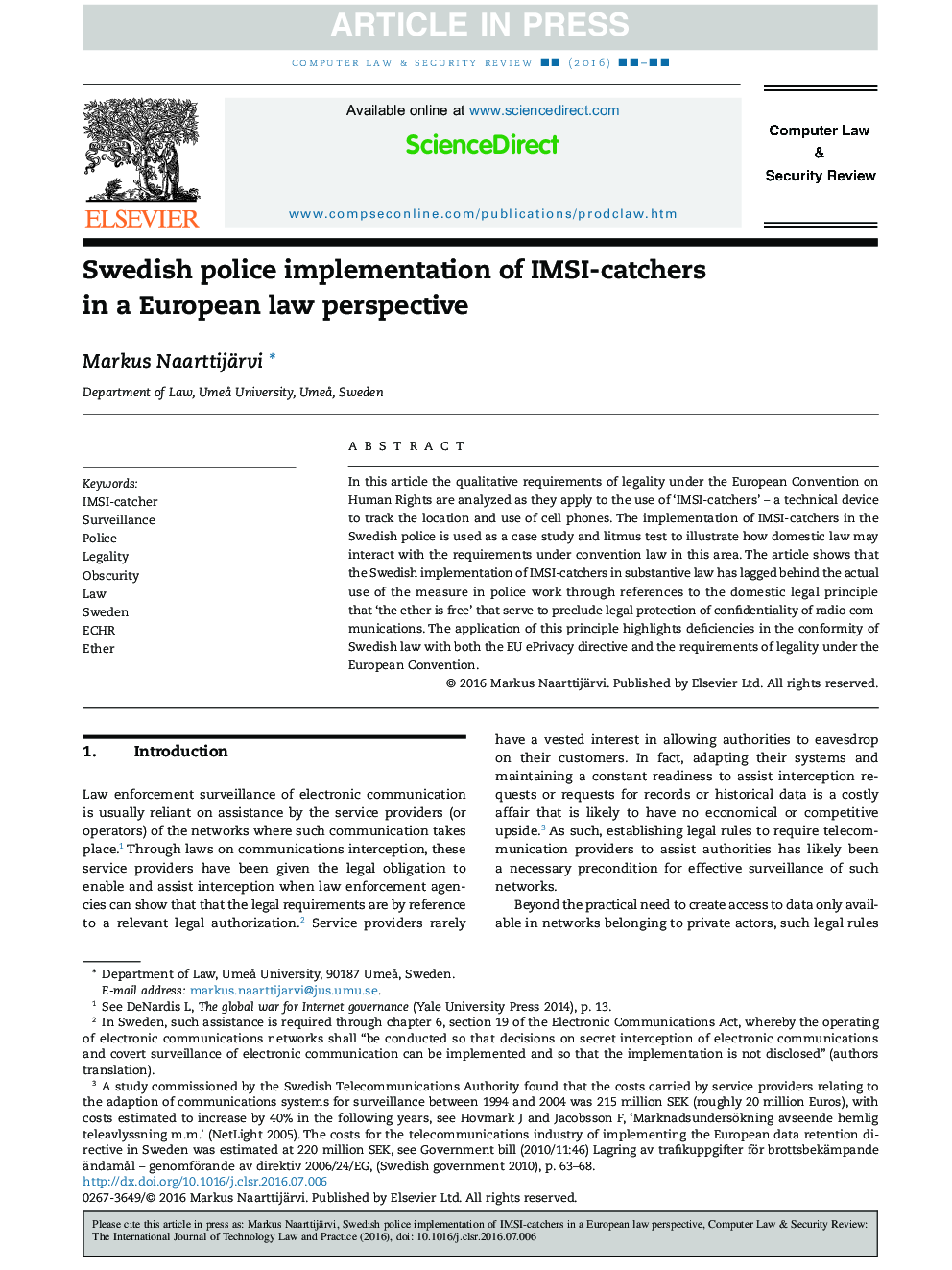| Article ID | Journal | Published Year | Pages | File Type |
|---|---|---|---|---|
| 4957925 | Computer Law & Security Review | 2016 | 16 Pages |
Abstract
In this article the qualitative requirements of legality under the European Convention on Human Rights are analyzed as they apply to the use of 'IMSI-catchers' - a technical device to track the location and use of cell phones. The implementation of IMSI-catchers in the Swedish police is used as a case study and litmus test to illustrate how domestic law may interact with the requirements under convention law in this area. The article shows that the Swedish implementation of IMSI-catchers in substantive law has lagged behind the actual use of the measure in police work through references to the domestic legal principle that 'the ether is free' that serve to preclude legal protection of confidentiality of radio communications. The application of this principle highlights deficiencies in the conformity of Swedish law with both the EU ePrivacy directive and the requirements of legality under the European Convention.
Related Topics
Physical Sciences and Engineering
Computer Science
Computer Science (General)
Authors
Markus Naarttijärvi,
